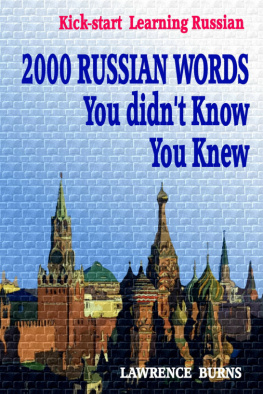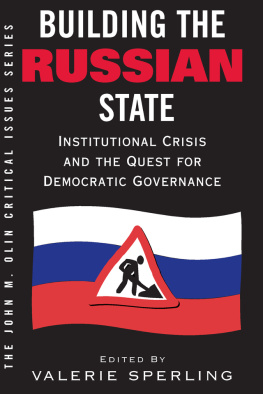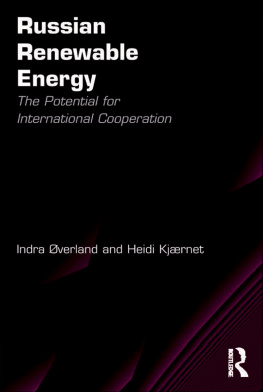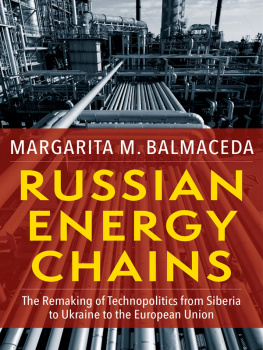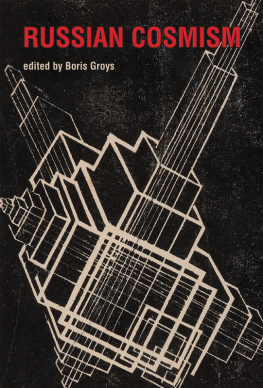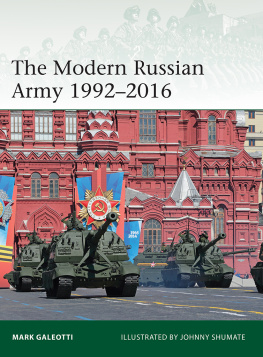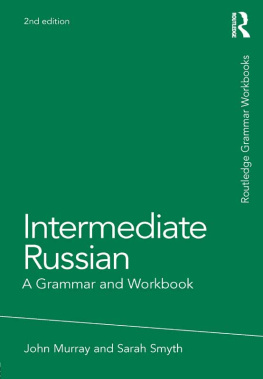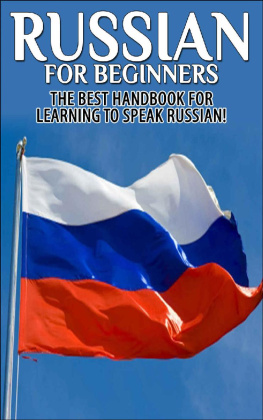
The Russian State and Russian Energy Companies, 19922018
The Russian State and Russian Energy Companies analyses the development of relations between the state and five major energy companies, and how this shaped Russias foreign policy in the post-Soviet region. The book argues that the development of Russias political economy mattered for foreign policy over the quarter of a century from 1992 to 2018. Energy companies roles in institutional development enabled them to influence foreign policy formation, and they became available as tools to implement foreign policy. The extent to which it happened for each company varied with their accessibility to the Russian state. Institutional development increased state capacity, in a way that strengthened Russias political regime. The book shows how the combined power of several companies in the gas, oil, electricity, and nuclear energy industry was a key feature of Russian foreign policy, both in bilateral relationships and in support of Russias regional position. In this way, Russias energy resources were converted to regional influence. The book contributes to our understanding of Russias political economy and its influence on foreign policy, and of the formation of policy towards post-Soviet states.
Ingerid M. Opdahl is associate professor at the Norwegian Institute for Defence Studies (IFS) at the Norwegian Defence University College, and heads the IFSs Russian Security and Defence Programme. She obtained a PhD in Russian, European and Eurasian Studies from the University of Birmingham in 2016. Opdahl has earlier published on Russias relations with Georgia and with Central Asian states. Her current research is part of the international research project Russias Politicized Economy, Elite Dynamics and the Domestic-Foreign Policy Nexus (RUSECOPOL), funded by the Norwegian Research Council and led by the IFS.
BASEES/Routledge Series on Russian and East European Studies
Series editors:
sociology and anthropology: Judith Pallot (President of BASEES and Chair), University of Oxford economics and business: Richard Connolly, University of Birmingham media and cultural studies: Birgit Beumers, University of Aberystwyth politics and international relations: Andrew Wilson, School of Slavonic and East European Studies, University College London history: Matt Rendle, University of Exeter
This series is published on behalf of BASEES (the British Association for Slavonic and East European Studies). The series comprises original, highquality, research-level work by both new and established scholars on all aspects of Russian, Soviet, post-Soviet and East European Studies in humanities and social science subjects
128. Security, Society and the State in the Caucasus
Edited by Kevork Oskanian and Derek Averre
129. Memory, the City and the Legacy of World War II in East Central Europe
The Ghosts of Others
Uilleam Blacker
130. US Foreign Policy Towards Russia in the Post-Cold War Era
Ideational Legacies and Institutionalised Conflict and Co-operation
David Parker
131. Tolstoys Political Thought
Christian Anarcho-Pacifist Iconoclasm Then and Now
Alexandre Christoyannopoulos
132. Azerbaijan and the European Union
Eske Van Gils
133. Freedom of Expression in Russias New Mediasphere
Edited by Marille Wijermars and Katja Lehtisaaris
134. The Russian State and Russian Energy Companies, 19922018
Ingerid M. Opdahl
For a full list of available titles please visit: https://www.routledge.com/BASEESRoutledge-Serieson-Russian-and-East-European-Studies/book-series/BASEES
First published 2020
by Routledge
52 Vanderbilt Avenue, New York, NY 10017
and by Routledge
2 Park Square, Milton Park, Abingdon, Oxon OX14 4RN
Routledge is an imprint of the Taylor & Francis Group, an informa business
2020 Taylor & Francis
The right of Ingerid M. Opdahl to be identified as author of this work has been asserted by him in accordance with sections 77 and 78 of the Copyright, Designs and Patents Act 1988.
All rights reserved. No part of this book may be reprinted or reproduced or utilised in any form or by any electronic, mechanical, or other means, now known or hereafter invented, including photocopying and recording, or in any information storage or retrieval system, without permission in writing from the publishers.
Trademark notice: Product or corporate names may be trademarks or registered trademarks, and are used only for identification and explanation without intent to infringe.
British Library Cataloguing-in-Publication Data
A catalogue record for this book is available from the British Library
Library of Congress Cataloging-in-Publication Data
A catalog record has been requested for this book
ISBN: 978-1-351-13407-1 (ebk)
ISBN: 978-0-815-35405-5 (hbk)
The young company president was barricaded in his Moscow office, the building surrounded by special police. When they went in early the next morning, to force him to give up his position in favour of a politically desirable replacement, media reported that the office door was opened using an angle grinder. The stand-off ended with the entry of the new company president. While the outgoing had been known for his audacity, his successor was an experienced and adept industry executive. Over the next eight years, he skilfully expanded the business while giving the occasional memorable media statement. Both are now long gone from Transneft, the Russian oil pipeline monopoly. It has since been headed by a loyal, and far less colourful, manager with a similar background to President Vladimir Putin. Conflicts over company management in Transneft and other energy companies are now more low-key, even when dramatic. They involve documents, delaying tactics and the occasional charge of fraud or embezzlement, rather than office sieges broken by police wielding power tools. What has not changed is that the outcome of such conflicts impacts Russian politics and influences institutional change in the economy. After all, they involve control over resource streams money flows and relations between the state and energy companies remain crucial in the Russian political economy. This book shows how statebusiness relations in Russia have developed and made energy companies so important, to the extent that they even became foreign policy tools of the state.
Statecompany relations are crucial in any political economy, not just Russias. This is especially the case when the rules of the game change. When every new rule has the potential to upset all short-term plans and long-term strategies, elites make their best effort to control decisive positions, as they did in post-Soviet Russia from 1992 to 2018. Even so, and even in periods of rapid change, the institutions, the rules of the game, evolve more slowly. The scope of this book is a consequence of the theoretical perspective on institutional development. Empirical realities also mattered for the design. The end of the Soviet Union was the beginning of the contemporary post-Soviet states. The centrifugal changes that followed have gradually turned the states into different political entities. It is meaningless to analyse them applying a one-size-fits-all approach. Nevertheless, Russias energy relations with them exhibit many continuities. Some ties have lost their relevance, whereas others have enhanced their significance. Covering a long time period makes it possible to show how and to arrive at a more complete picture.



